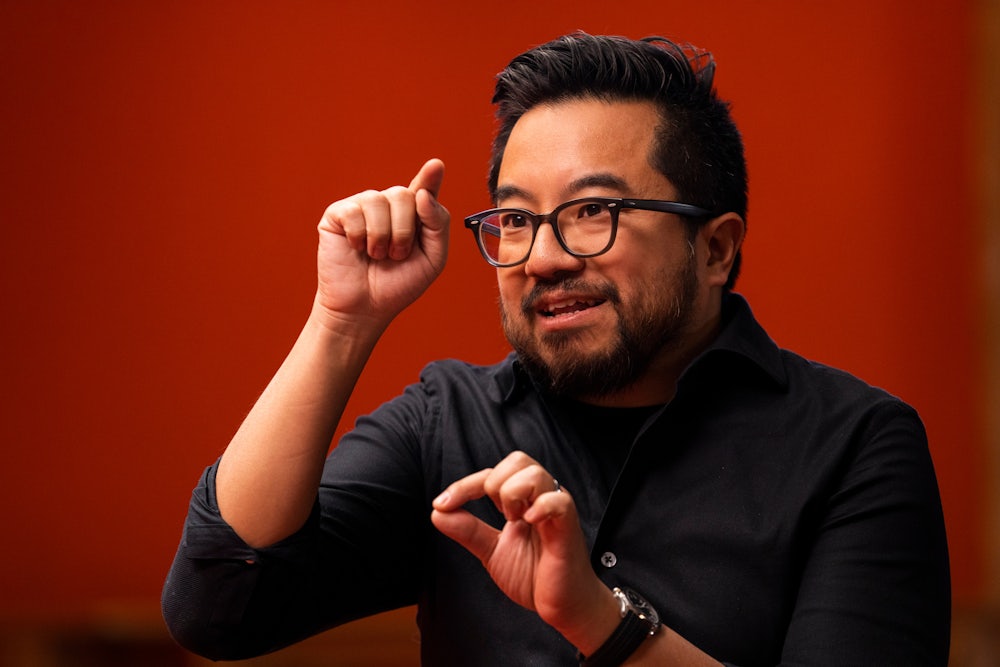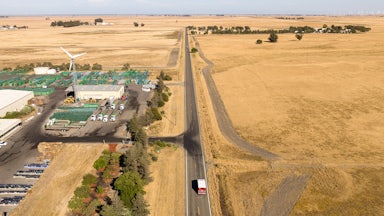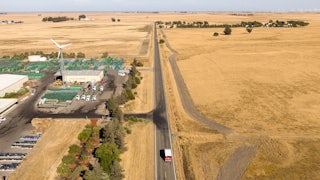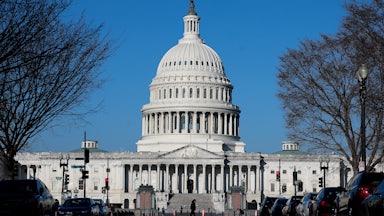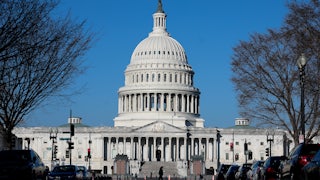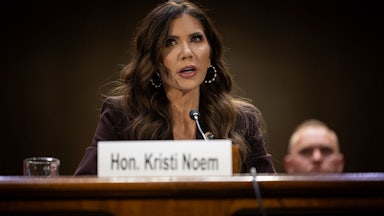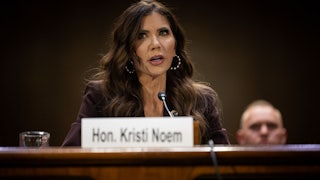On a Friday night in late January, the leader of a famed San Francisco venture capital firm got drunk and launched into a profanity-laced tirade on social media. Garry Tan, the Y Combinator CEO currently spearheading a tech-funded campaign to seize control of the city’s government, spent his long, strange night being publicly aggrieved by his usual foes: the progressive politicians he blames for the city’s ills.
He took things a step too far. Posting on X, formerly Twitter, Tan wished death upon a majority of the San Francisco Board of Supervisors. “Fuck Chan Peskin Preston Walton Melgar Ronen Safai Chan as a label and motherfucking crew,” wrote Tan, name-checking seven progressive supervisors in a hypercringy attempt to adapt Tupac Shakur’s “Hit ’Em Up” to his drunken rants. “Die slow motherfuckers.” For good measure, he posted a photo of his personal liquor cabinet. Its inscription: “Garry Tan, SF Social Media Troll. Twitter Menace.”
Tan specializes in such tantrums. Over the past two years, he has established himself as the city’s chief Twitter attack dog. But his activism extends beyond social media. He donated $100,000 to the recall campaign against District Attorney Chesa Boudin, who was ousted in June 2022. Two months later, Y Combinator appointed Tan as CEO.
“Garry is one of the most ‘YC’ people in the whole industry,” tweeted Sam Altman, the OpenAI CEO who formerly led Y Combinator, at the time. “Also, it’s a big deal [in my opinion] that YC will have a CEO so active in local politics. I think YC can make a big difference here.”
Emboldened by the recall, Tan ramped up his ambitions—and his rhetoric. Last July, he posted an angry YouTube screed in which he promised to “wipe out” progressive supervisors for raising safety concerns about driverless robotaxis. “Peskin, Preston, Chan, Walton, Melgar, Ronen—your days are numbered,” said Tan in a finger-wagging screed.
His harangue aged poorly. In October, a driverless Cruise vehicle pinned a pedestrian and dragged her 20 feet along the pavement. Cruise lost its operating permit, its top executives resigned, and General Motors slashed its investment. The company, launched by Y Combinator in 2014, now faces a $1.5 million fine for allegedly hiding key facts from regulators.
Tan’s more recent drunk tweets also backfired pretty badly. As it turns out, assassination talk gets taken rather seriously in the city where Mayor George Moscone and Supervisor Harvey Milk were murdered in 1978. Within days, Tan’s targets began receiving death threats in their mailboxes. “I don’t give a fuck,” Tan had declared during his tweetstorm. But he soon changed course, deleting his alcohol-fueled rage posts and hiring a crisis P.R. firm to help with damage control as the negative headlines erupted. A mandatory show of contrition was seemingly ordered: “I am sorry for my words and regret my poor decision,” he said in a statement.
It was a terrible first impression to make on voters, most of whom had probably never heard of their city’s new self-anointed political king until he became so flamboyantly unhinged and flew off the handle. (Tan is notorious for having preemptively blocked half of the city, including most reporters, on Twitter.) The meltdown also cracked Tan’s image as an unapologetic Elon Musk mini-me with grandiose plans to build a “parallel” society. I mentioned Tan in a recent piece about wealthy techies trying to build privately governed cities as part of the “network state” movement. In San Francisco, he is working on an adjacent strategy. Instead of starting a new city, he wants to capture city government in November’s elections and hold it hostage to his demands.
Tan and fellow tech barons have promised to invest up to $15 million in local races. Tech-funded front groups are rallying support for a slate of anti-progressive candidates who promise swift action to solve crime, homelessness, and drug addiction. They frame their politics as “moderate,” but the terms “reactionary” and “right-wing” often fit better. Their policy wish list reads like a Republican platform: more police funding (along with a repeal of police reform and criminal justice reform); a return to the “war on drugs” (with an emphasis on jailing homeless drug users); a rejection of harm reduction strategies like overdose prevention (in a city where 806 people died of overdoses last year); and the billionaire-funded expansion of mass video surveillance.
Consider the central myth of their movement—that everything was wonderful until progressives ruined it. History tells a decidedly different story: Crime rates were higher during the decades when moderate Democratic standard-bearers such as Dianne Feinstein, Kamala Harris, and Gavin Newsom held the city’s top leadership positions—which, in fairness, reflected the higher national crime rates of that period. Additionally, crime rates and overdose rates are generally higher in Republican-led states with harshly punitive policies.
But facts and logic hold no sway over those on a mission to Make San Francisco Great Again, and the city’s oligarchs in waiting tell on themselves in numerous other ways, as well.
“We’ve replaced some pieces of that political machine—specifically, we have parallel media now with Elon’s Twitter, or X,” crowed Tan during a presentation at the 2023 Network State Conference. “Getting a parallel media was a key piece, and it wasn’t through voting. It was done by building.… We need to replace the unelected parts of the system as well, building parallel education, nonprofits, media, unions.”
“That’s a possible recipe for reforming San Francisco and building the alternative tech political machine,” he said. “And if it works in [San Francisco], it will work everywhere.”
Tan’s portrayal of Musk’s Twitter as a victory for his own political vision speaks volumes. As I write, the billionaire owner of X-Twitter is on yet another of his racist conspiracy theory diatribes. Musk’s ownership of the platform unleashed a surge of hate speech and misinformation. “Our reporting has shown that, under his watch, the number of tweets containing slurs has risen by up to 202 percent; that tweets linking LGBTQ+ people to ‘child grooming’ have more than doubled; demonstrated that climate denial content and accounts are surging; and revealed Twitter’s failure to act on hate posted by Twitter Blue subscribers,” wrote Imran Ahmed of the Center for Countering Digital Hate. Musk, who called Ahmed a “rat,” filed a lawsuit against his nonprofit.
Advertisers have fled, reportedly erasing 72 percent of X’s value. But Musk didn’t buy Twitter to make money. The true goal, as Tan says, was to replace an existing institution with a parallel version. But the word “parallel,” like “moderate,” is not the most apt descriptor.
Naomi Klein (not the Other Naomi) coined the term “mirror world” to explain the strategy in which things become twisted, upside down, and reverse versions of themselves. Take, for example, how Musk turned Twitter’s verification blue check system on its head. Among his first acts was to strip experts, journalists, and celebrities of their official status, a change designed to elevate the voices of right-wing trolls and sycophantic subscribers.
If Tan’s vision aligns with Musk’s, then he’s clearly not trying to incubate a centrist revolution. No, this is a decidedly extreme brand of politics, though it’s not exactly innovative. Tech bros like Tan think they are reinventing whole systems, conjuring terms like “effective accelerationism” to describe their philosophy. But the ancient Greeks already put a name to their core ideas over 2,000 years ago. For example, there’s plutocracy, or rule by the wealthy, and autocracy, rule by dictatorship. More recently, Émile P. Torres and Timnit Gebru created the acronym TESCREAL (transhumanism, extropianism, singularitarianism, cosmism, Rationalism, Effective Altruism, and Longtermism) to describe the stack of esoteric beliefs behind the new tech ideology.
Even as Tan struggled to contain his tweet scandal, a new term emerged. “The behavior of these companies and the people who run them is often hypocritical, greedy, and status-obsessed,” wrote The Atlantic’s Adrienne LaFrance in a piece titled “The Rise of Techno-Authoritarianism.” “But underlying these venalities is something more dangerous, a clear and coherent ideology that is seldom called out for what it is: authoritarian technocracy.”
The same day, Axios published a piece branding the ideology under the label favored by Tan ally Marc Andreessen: “techno-optimism.” Axios described it as something embraced by “mostly rich, white, middle-aged men with tech jobs, companies or investment funds” who share an ideology of “unfettered free speech, pro-artificial intelligence, anti-mainstream media, and deep skepticism of DEI, political correctness, and elite consensus.”
“The techno-optimist movement is a backlash to a kind of exhausting constant naysaying, constant reaction of ‘this is bad and will only be bad,’” said Nellie Bowles, a San Francisco native whose 2022 essay, “How San Francisco Became a Failed City,” became an instant classic of the “S.F. doom” genre.
So, there’s no debate about whether this ideology exists. The question is what to call it, and how to describe its political orientation. For clarity, it helps to briefly examine some of the intertwined characters trying to circle-jerk this parallel world into being.
Let’s start with Bowles. Her celebrated article echoed the arguments in Michael Shellenberger’s “San Fransicko: How Progressives Ruin Cities” book and even featured the exact same anti-S.F. critics. Shellenberger, a former leftist P.R. expert who worked for socialist Venezuelan strongman Hugo Chávez before pivoting to right-wing causes, now serves as chair of politics, censorship and free speech at the newly formed University of Austin. This effort at a parallel academic institution was co-founded by The New York Times’ former conservative columnist Bari Weiss, Bowles’s wife. In 2022, after Musk put Weiss in charge of writing “The Twitter Files,” she recruited Shellenberger to help.
Shellenberger, who now poses as a journalist (with an incisive interest in demonizing fact-checkers and renewable energy), has become a Musk favorite. His error-riddled and conspiratorial writings—parallel journalism, a.k.a. disinformation—regularly go viral on X, earning him regular appearances in right-wing outlets like Fox, News Nation, the One America News Network, and the Epoch Times.
In 2022, before completing his public turn to the fever-swamp right, Shellenberger ran for governor of California as—drum roll—a moderate. He portrayed San Francisco’s ills as the natural result of Democratic governance. Altman, Tan’s predecessor at Y Combinator, donated the maximum of $32,400 to Shellenberger’s stunt campaign.
Altman’s longtime mentor, Republican megadonor Peter Thiel, co-founded Palantir Technologies with Joe Lonsdale (founding trustee and chairman of the University of Austin). Tan was the tenth employee at Palantir, a financial and surveillance software giant with massive government contracts. Thiel, along with Musk, was part of the famed “PayPal Mafia.” So was David Sacks, who lives in San Francisco and, along with Tan, was a top donor to the Boudin recall. Sacks and his wife also wrote big checks supporting the recall against Newsom in 2021. (Newsom predictably crushed the recall with nearly 60 percent of the vote.)
More recently, Sacks promoted the presidential campaign of Ron DeSantis, who continues to screech about San Francisco despite having miserably flamed out of the Republican primary. When not using his X account to complain about California Democrats, Sacks regularly attacks Joe Biden and Ukrainian President Volodymyr Zelenskiy.
I could keep going … but you get the picture. This Mirror World Mafia does not include any moderates, much less Democrats. It’s all just a well-funded effort to red-pill San Francisco. But pivoting the city of St. Francis away from progressivism and toward plutocracy and prisons won’t necessarily be easy.
San Francisco politics are close-knit and personal. Big money doesn’t always win. The progressive leaders Tan despises were recently elected by the voters. Business-led efforts to break the city’s progressive spirit have failed in the past, said Jim Ross, a veteran political consultant. “Their message is basically ‘let us run over you,’ literally and figuratively, and let us use San Francisco as our little lab,” said Ross, who doubts Tan will succeed.
“It’s a lot harder than it looks to build consistent political power in San Francisco. Could they win a seat or two? Sure. But these guys all go away eventually.”
Perhaps. But this relentless crop of billionaires sees California politics as highly vulnerable to disruption. One of them seems to believe he must colonize San Francisco before he can colonize Mars. “The politicians responsible for destroying San Francisco need to be fired,” tweeted Musk as the Twitter blue checks swarmed to Tan’s defense. “End of story.”
